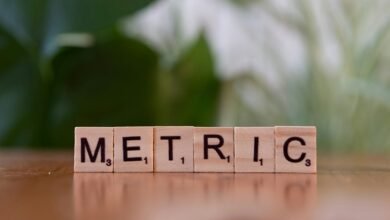Understanding the Technology Behind AI Music Generation

AI music generation is revolutionizing the way we create and experience music. With advancements in artificial intelligence, algorithms are now capable of composing original melodies, harmonies, and even entire songs. But how does AI create music? In this article, we’ll dive into the technology behind AI music generation, explore the tools available, and offer actionable insights on how you can leverage AI to enhance your own music creation.
What is AI Music Generation?
AI music generation refers to the process where artificial intelligence is used to create music. AI systems are trained using vast datasets of existing music, allowing them to learn patterns, structures, and styles that are commonly found in musical compositions. These systems are powered by machine learning algorithms that can generate melodies, chords, and rhythms, either from scratch or based on specific user inputs.
The technology behind AI music generation is primarily based on neural networks, which are modeled after the human brain’s structure. These networks can analyze data, learn from it, and make predictions. With music, this involves learning the nuances of musical theory, such as rhythm, scale, and harmony, and then applying that knowledge to create something entirely new.
See also: Unlocking the Secrets of Metalworking: Key Techniques Every Machinist Should Know
How Does AI Music Generation Work?
At the core of AI music generation are deep learning algorithms that process massive amounts of musical data. These systems are trained using music samples from various genres and periods, allowing them to identify trends and patterns within the compositions. The training process can involve multiple approaches:
- Recurrent Neural Networks (RNNs): These are commonly used for sequential data, making them perfect for music generation, where the order of notes and rhythm is crucial.
- Generative Adversarial Networks (GANs): GANs are used to create new music by pitting two neural networks against each other – one generates music, and the other tries to detect whether it is authentic or not. This competition improves the generated output over time.
- Transformers: A newer and highly effective approach, transformers are models capable of handling long-range dependencies in data, making them excellent for generating complex musical compositions over long durations.
By learning from these vast musical databases, AI can compose a wide range of music, from classical symphonies to modern pop tracks, based on the styles it has been trained on.
Benefits of Using AI for Music Creation
AI music generation isn’t just for tech enthusiasts; it offers a range of practical benefits for musicians, composers, and content creators:
- Increased Creativity: AI can help break through creative blocks by generating new ideas, themes, and melodies that a composer might not have thought of on their own.
- Time Efficiency: Instead of spending hours experimenting with musical arrangements, AI can quickly generate multiple variations of a composition, allowing musicians to focus on refining their work.
- Personalization: Many AI music generators allow users to customize the output based on preferred genres, moods, or even specific instruments, making it easy to create personalized tracks.
- Cost-Effective: For those without access to a full orchestra or professional musicians, AI can generate high-quality compositions at a fraction of the cost.
Popular AI Music Tools to Try
If you’re interested in experimenting with AI music generation, here are a few popular tools to explore:
- Amper Music: This AI music tool allows users to create and customize original music tracks, ideal for video production and background music.
- OpenAI’s MuseNet: A deep learning model trained on a large dataset of musical compositions, MuseNet can generate music across multiple genres and styles.
- AIVA: AIVA (Artificial Intelligence Virtual Artist) is a composer AI that can create symphonic music and is often used by professionals for film scoring.
- Soundraw: For those looking to create unique tracks based on a specific theme or emotion, Soundraw offers AI-driven music generation with extensive customization options.
If you’re looking for something more creative, try this 3d AI text generator to explore the intersection of AI and other creative fields.
How AI is Shaping the Future of Music
AI is not just transforming music creation; it’s also changing the music industry itself. Music platforms and streaming services are already using AI to recommend personalized playlists, detect fraud, and even predict future hits. As AI continues to evolve, we can expect more integration between technology and music, creating new opportunities for artists, producers, and listeners alike.
Conclusion
The technology behind AI music generation is fascinating and evolving rapidly. By understanding how AI algorithms process music data and generate new compositions, creators can unlock endless possibilities for their music projects. Whether you’re a seasoned musician or a budding composer, AI music generation tools provide a way to enhance your workflow, overcome creative blocks, and create personalized music that speaks to your audience.





